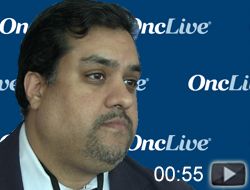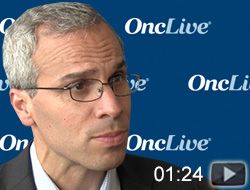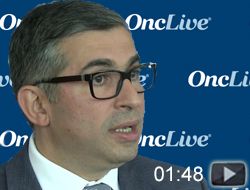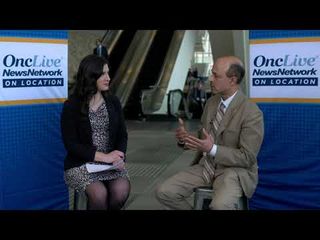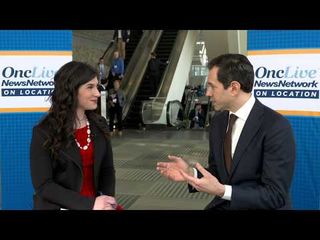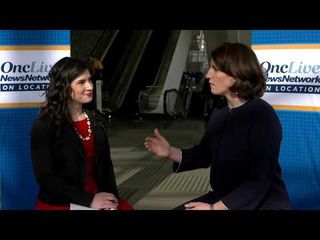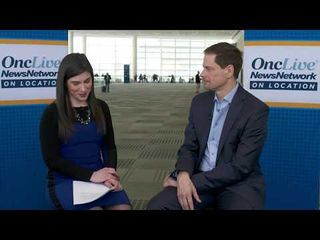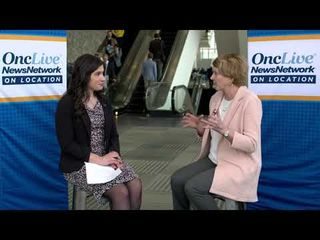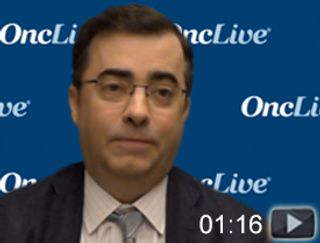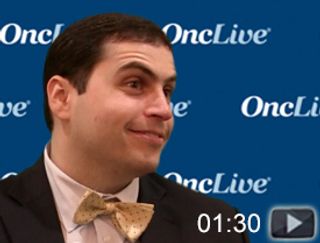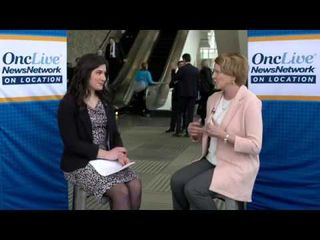
Genitourinary Cancers
Latest News
Latest Videos
CME Content
More News
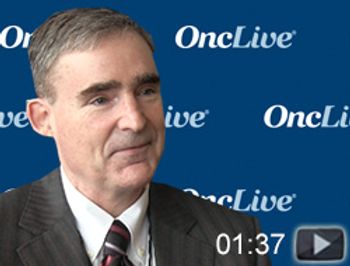
Steven Campbell, MD, PhD, urologist, Cleveland Clinic, discusses recent advancements in the management of kidney cancer.
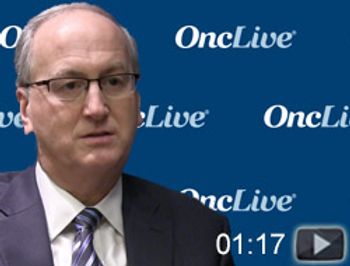
David M. Nanus, MD, medical oncologist, Weill Cornell Medicine/NewYork-Presbyterian Hospital, discusses cytoreductive nephrectomy for patients with renal cell carcinoma (RCC).

The European Commission has approved tivozanib for the treatment of patients with advanced renal cell carcinoma.

Peter Black, MD, senior research scientist, Vancouver Prostate Centre, associate professor, Department of Urologic Sciences, University of British Columbia, discusses future developments being made in the field of immunotherapy for patients with bladder cancer.

Results from the PROSELICA trial showed that 20 mg/m2 of cabazitaxel (Jevtana) was as safe and effective as the 25 mg/m2 dose for postdocetaxel patients with metastatic castration-resistant prostate cancer.

Michael B. Atkins, MD, discusses the latest IMmotion150 findings and additional developments with immunotherapy in mRCC.
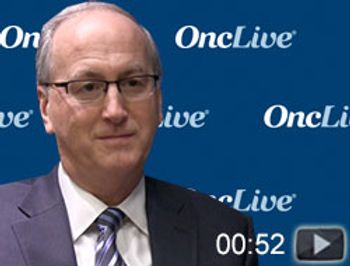
David M. Nanus, MD, medical oncologist, Weill Cornell Medicine/NewYork-Presbyterian Hospital, discusses treatment for patients with early-stage kidney cancer.
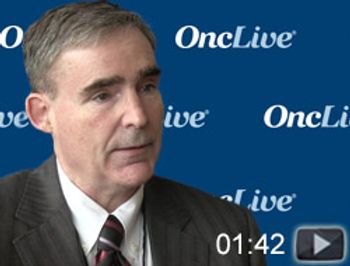
Steven Campbell, MD, PhD, urologist, Cleveland Clinic, discusses the future of the treatment management for patients with renal cell carcinoma (RCC).

The guidelines provide evidence-based recommendations on staging, neoadjuvant and adjuvant chemotherapy, radical cystectomy, urinary diversion, perioperative surgical management, and pelvic lymphadenectomy.

The combination of frontline atezolizumab and bevacizumab demonstrated superior efficacy compared with sunitinib or atezolizumab monotherapy in patients with advanced renal cell carcinoma.

Hans J. Hammers, MD, PhD, associate professor, Internal Medicine, UT Southwestern Medical Center, discusses the next steps with immunotherapy for patients with renal cell carcinoma (RCC).
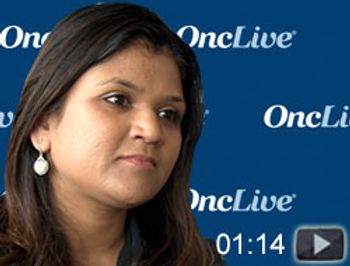
Shilpa Gupta, MD, assistant professor, Hematology Oncology and Transplantation Division, University of Minnesota, discusses PD-L1 as a biomarker in kidney cancer.

Adam Scott Feldman, MD, MPH, urologist at Massachusetts General Hospital, assistant professor of surgery, Harvard Medical School, discusses metabolomic findings in prostate cancer.

Peter Black, MD, discusses the latest on durvalumab and other ongoing developments in the field of bladder cancer.
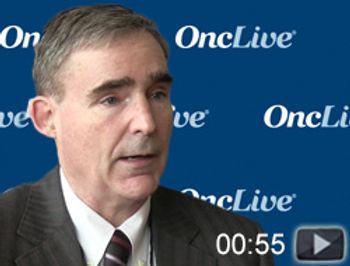
Steven Campbell, MD, PhD, urologist, Cleveland Clinic, discusses the role of radical nephrectomy according to the guidelines for patients with renal cell carcinoma (RCC).

Ketan K. Badani, MD, discusses the benefits of robotic surgery in RCC and use of the technique among urologists.
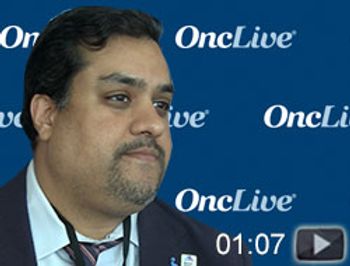
Ketan K. Badani, MD, professor of urology at Mount Sinai Hospital, discusses the adoption of robotic surgery in kidney cancer.
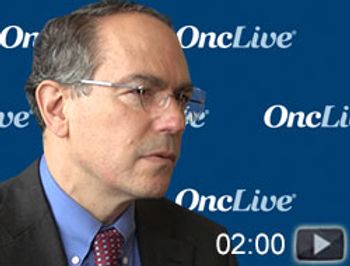
Peter Choyke, MD, FACR, chief of Molecular Imaging Program, National Cancer Institute, discusses the challenges with MRI in prostate cancer.
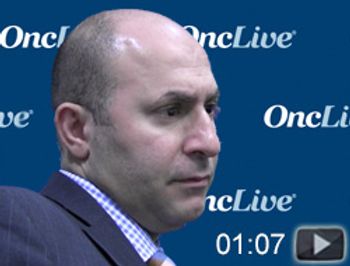
Toni K. Choueiri, MD, director, Lank Center for Genitourinary Oncology, director, Kidney Cancer Center, senior physician, Dana-Farber Cancer Institute, discusses the findings of the CABOSUN trial for patients with metastatic renal cell carcinoma (mRCC).

Adam Scott Feldman, MD, MPH, urologist at Massachusetts General Hospital, assistant professor of surgery, Harvard Medical School, discusses the remaining challenges with biomarkers in prostate cancer.

Peter Black, MD, senior research scientist, Vancouver Prostate Centre, associate professor, Department of Urologic Sciences, University of British Columbia, discusses selecting immunotherapy agents in bladder cancer.
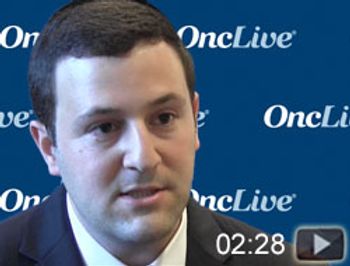
Moshe Ornstein, MD, staff, Cleveland Clinic, discusses the challenges surrounding immunotherapy for patients with renal cell carcinoma.

A supplemental new drug application has been submitted to the FDA for cabozantinib for previously untreated patients with advanced renal cell carcinoma.

The combination of nivolumab (Opdivo) and ipilimumab (Yervoy) improved the objective response rate and duration of response compared with sunitinib (Sutent) in patients with treatment-naïve metastatic renal cell carcinoma, according to CheckMate-214.
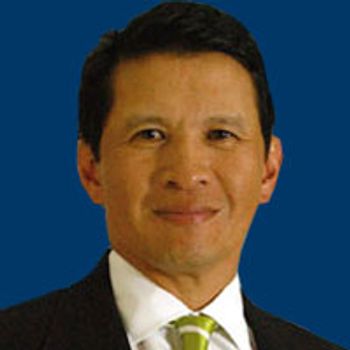
Research into the biology of prostate cancer has resulted in a growing understanding of the molecular drivers of the malignancy, resulting in a rapid evolution of genetic testing that is poised to revolutionize the diagnosis and care of at-risk men as well as those who have the disease.



